detail profile shinichir c3 b4 ikebe
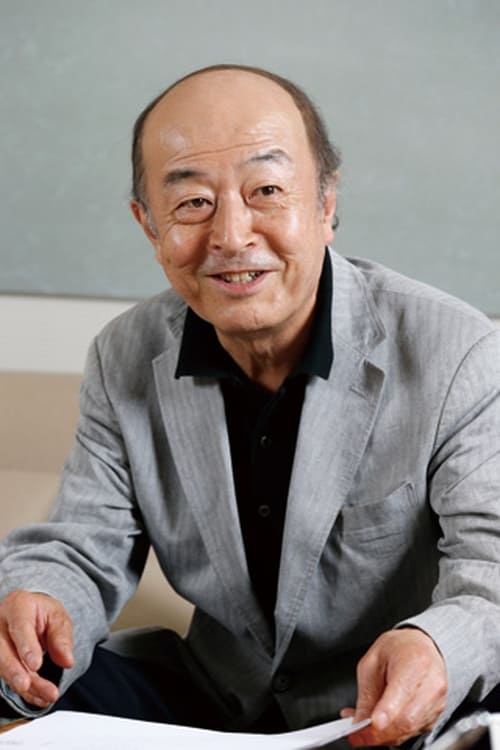
Shinichirô Ikebe
Shin'ichirō Ikebe
atau dikenal sebagai
Riwayat Hidup
Shin'ichirō Ikebe (Japanese: 池辺 晋一郎 Ikebe Shin'ichirō; born September 15, 1943, in Mito, Ibaraki) is a Japanese composer of contemporary classical music.
He has written the scores for many films by Akira Kurosawa and other Japanese film directors, including Kagemusha (1980), MacArthur's Children (1984), Kurosawa's Dreams (1990), Rhapsody in August (1991), Madadayo (1993), and Warm Water Under a Red Bridge (2001).
He studied composition with Tomojirō Ikenouchi, Akio Yashiro, and Akira Miyoshi at the Tokyo National University of Fine Arts and Music, obtaining a master's degree in 1971.
He serves as a professor at the Tokyo College of Music.
He had several awards up to 2004, such as Excellence at the Salzburg TV Opera, The Italian Broadcasting Corporation, that is, RAI, The International Emmy Award, the Otaka Award, the Broadcasting Culture Award, the Yoshio Sagawa incentive Award, the Medal with Purple Ribbon.
Info Pribadi
Peran Yang Di Mainkan Shinichirô Ikebe
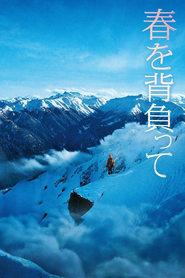 Toru grew up in alpine countryside...
Toru grew up in alpine countryside...Climbing to Spring 2014
Toru grew up in alpine countryside around Mount Tate. As a child, he resented the yearly trek up the mountain with his father to prepare their mountain hut for the summer season of climbers. When Toru grows up, he leaves his hometown and enters the working world as a stock trader. One day, Toru receives word that his father has passed away. He returns to Mount Tate once again, and becomes conscious of a new calling. But, does Toru have what it takes to follow in his father’s footsteps?
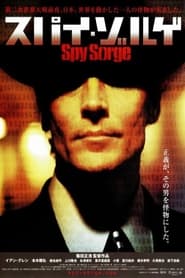 A foreign spy using the Sorge...
A foreign spy using the Sorge...Spy Sorge 2003
A foreign spy using the Sorge alias is assigned to Tokyo the capital of Japan just prior to the outbreak of World War II and in the midst of the Japanese imperial ambitions in Eastern Asia. The spy becomes acquainted with a sympathetic communist who like he is attached to the ideals of freedom and rule of the masses. Sorge is able to feed the Soviet Union useful information regarding the Axis allies and their movements in Asia and beyond.
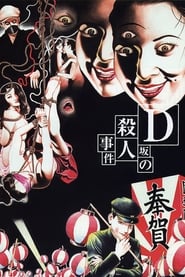 Detective Kogoro Akechi is faced with...
Detective Kogoro Akechi is faced with...Murder on D Street 1998
Detective Kogoro Akechi is faced with a peculiar murder case involving forgeries of classic pornographic artworks.
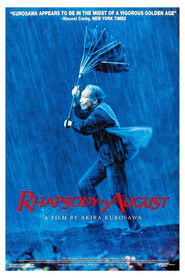 The story centers on an elderly...
The story centers on an elderly...Rhapsody in August 1991
The story centers on an elderly hibakusha, whose husband was one of 80,000 human beings killed in the 1945 atomic bombing of Nagasaki, caring for her four grandchildren over the summer. She learns of a long-lost brother, Suzujiro, living in Hawaii who wants her to visit him before he dies.
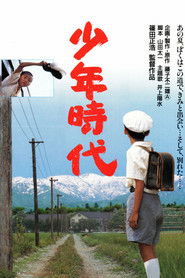 A story of childhood life during...
A story of childhood life during...Takeshi: Childhood Days 1990
A story of childhood life during wartime Japan. Takeshi, the intelligent son of a fisherman, is the schoolyard bully. When his cousin comes to stay with his family to avoid bombing raids, Takeshi at first treats him well, then begins bullying him too. Takeshi eventually loses his position of leadership.
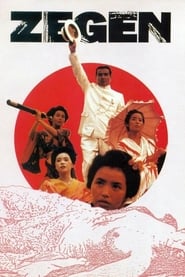 At the time between the World...
At the time between the World...Zegen 1987
At the time between the World Wars, Japan is involved in empire-building throughout East and Southeast Asia. After a brief career as a low-level military adventurer, Iheiji sets up chains of brothels throughout Asia. As Japan's power in the region grows, so does Iheiji's prosperity and patriotism.
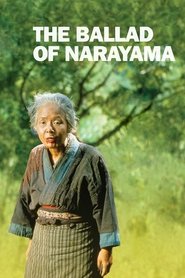 In a small village in a...
In a small village in a...The Ballad of Narayama 1983
In a small village in a valley everyone who reaches the age of 70 must leave the village and go to a certain mountain top to die. If anyone should refuse they would disgrace their family. Old Orin is 69. This winter it is her turn to go to the mountain. But first she must make sure that her eldest son Tatsuhei finds a wife.
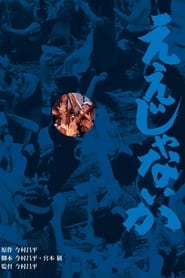 The film depicts carnivalesque atmosphere summed...
The film depicts carnivalesque atmosphere summed...Why Not? 1981
The film depicts carnivalesque atmosphere summed up by the cry "Ei ja nai ka" ("Why not?") in Japan in 1867 and 1868 in the days leading to the Meiji Restoration. It examines the effects of the political and social upheaval of the time, and culminates in a revelrous march on the Tokyo Imperial Palace, which turns into a massacre. Characteristically, Imamura focuses not on the leaders of the country, but on characters in the lower classes and on the fringes of society.
 Akira Kurosawas lauded feudal epic presents...
Akira Kurosawas lauded feudal epic presents...Kagemusha 1980
Akira Kurosawa's lauded feudal epic presents the tale of a petty thief who is recruited to impersonate Shingen, an aging warlord, in order to avoid attacks by competing clans. When Shingen dies, his generals reluctantly agree to have the impostor take over as the powerful ruler. He soon begins to appreciate life as Shingen, but his commitment to the role is tested when he must lead his troops into battle against the forces of a rival warlord.
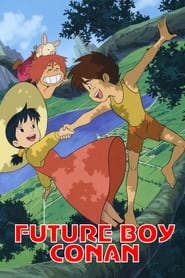 In this 1979 condensedforfilm recut of Hayao...
In this 1979 condensedforfilm recut of Hayao...Future Boy Conan 1979
In this 1979 condensed-for-film recut of Hayao Miyazaki's 1978 anime series, a young boy named Conan goes on a grand adventure. Conan lives in a world that is mostly oceans; the major land masses having been destroyed by the weapons of the great disaster of 2008. He meets a young girl named Lana, who is kidnapped by the technological city-state of Industria as they attempt to regain those weapons. Together with his friends, Conan sets out to rescue Lana and stop Industria from threatening the rest of the world.
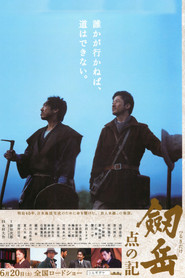 In 1907 a group of men climb...
In 1907 a group of men climb...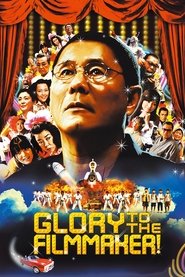 Takeshi Kitano plays a version of...
Takeshi Kitano plays a version of... A downandout businessman travels to a...
A downandout businessman travels to a...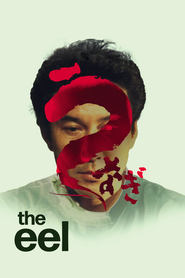 A businessman kills his adulterous wife...
A businessman kills his adulterous wife...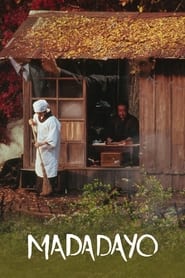 Based on the life of Hyakken...
Based on the life of Hyakken...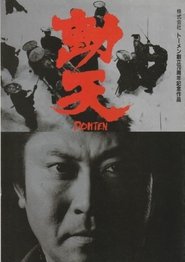 Jubei is a Japanese merchant who...
Jubei is a Japanese merchant who...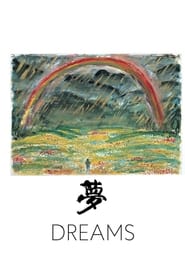 A collection of magical tales based...
A collection of magical tales based... A serial killing occurs at a...
A serial killing occurs at a...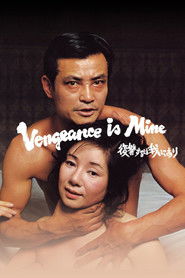 A thief a murderer and a...
A thief a murderer and a...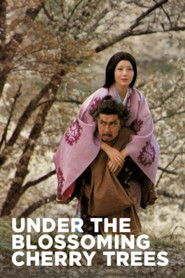 A mountain man beheads his many...
A mountain man beheads his many...